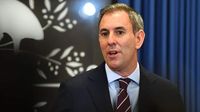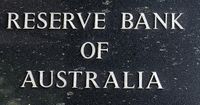Treasurer Jim Chalmers has confirmed a budget deficit in Australia’s upcoming financial plan, a development that will capture voters’ attention as the nation approaches federal elections. The projected deficit stands at $26.9 billion for the current financial year, with estimates suggesting it may balloon to as much as $46.9 billion in the financial year 2025-2026.
Despite having achieved a surplus in the preceding two years, the Australian economy faces a critical period, with Chalmers indicating that the nation has moved beyond its most severe challenges. Economic analysts predict a reduction in growth, with a direct impact of approximately 0.25 percentage points on the gross domestic product (GDP).
In assessing the factors contributing to this deficit, Chalmers pointed to the financial burden incurred from Cyclone Alfred, estimating that the resulting economic loss could reach around $1.2 billion. Infrastructure damage and agricultural losses from the cyclone may inflate prices for agricultural products and construction materials.
The Treasurer also outlined the global economic climate, which has become increasingly unstable. Slowdowns in growth in major economies such as China and the United States, coupled with tensions arising from new US trade policies and geopolitical instability in Europe and the Middle East, are adding pressure to Australia’s economy. Chalmers criticized the US decision not to exempt Australia from tariffs on steel and aluminum, labeling it as “unjustified” and warning of potential long-term repercussions for Australia's economic landscape.
Amid rising inflationary pressures, the welfare of households has emerged as a priority for the government. The budget intends to provide balanced financial support to Australian families, which includes measures such as new tax reductions, rent assistance for low-income households, and enhanced educational support for university students. Notably, the government previously announced a further 20% reduction in student loan debts, which will alleviate about $16 billion of debt for roughly three million students.
In the realm of education and healthcare, the government has pledged over $1 billion to expand childcare options, ensuring that families eligible for support receive three days of subsidized childcare weekly. Additional funding of $8.5 billion is allocated to strengthen the Medicare system, extending direct billing services to all Australians and establishing 50 new emergency care clinics by 2026.
The budget also earmarks significant investments in infrastructure, focusing on projects that promise to bolster the economy while addressing pressing needs. This includes a $2.4 billion investment to support sewage plants in Woy Woy and a $7.2 billion allocation to improve the Bruce Highway in Queensland.
As the opposition prepares to respond to the budget, we can expect more details about their prospective economic policies in the forthcoming week.
Overall, this budget reflects a government grappling with immediate economic challenges while still attempting to lay the groundwork for future prosperity through investment in both fiscal support and infrastructure development.





